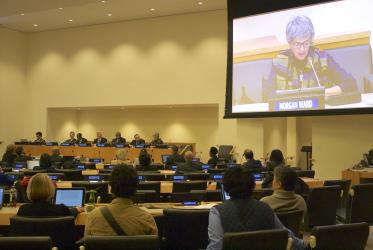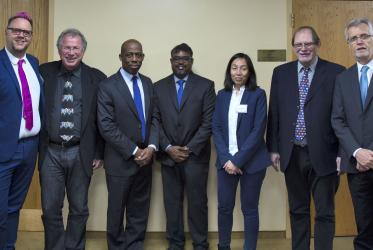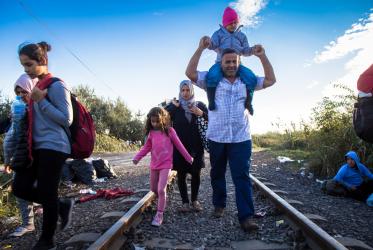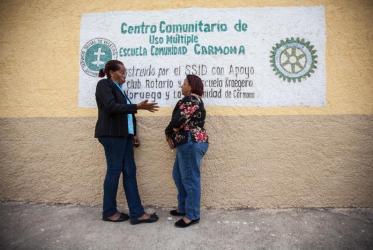Displaying 1 - 16 of 16
Churches should use their voice on climate change
26 February 2020
New economic architecture focus of New York meeting
22 April 2018
Emily Welty: tide of hope for a world free from nuclear weapons
19 September 2017
Symposium focuses on religion, violence, extremism
04 February 2016
Church leaders address statelessness in Dominican Republic
03 February 2015
Use of armed drones condemned by WCC
13 February 2014
Le COE condamne l'utilisation de drones armés
13 February 2014






